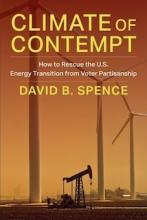The Hamilton Book Awards recognize the outstanding scholarship and creativity of UT Austin faculty and staff members who have published books and other works. The diverse intellectual capital of the University is reflected in prize-winning books that range from the sciences to humanities, arts, business and more.

The Hamilton Book Awards program is co-sponsored by the Office of the Vice President for Research, Scholarship and Creative Endeavors and The University Co-operative Society. Established in 1998, the program is named for Robert W. Hamilton in honor of his 12 years of service as the chairperson of the Co-op board of directors. Prior to his death in 2018, Hamilton was a professor at the UT Austin School of Law for more than 40 years and was a nationally recognized corporate law scholar and a prolific author. Up to four awards will be given each year, consisting of one grand prize award of $10,000 and three finalist awards of $3,000 each.
For more information, contact
honorific-vpr@austin.utexas.edu
Nomination Submissions
Submission Deadline
Call for nominations are now open! All nominations must be submitted by January 26, 2026. Nominated scholarly books or creative works must be published by an academic, university, or commercial press between September 1, 2024 – August 31, 2025 and must be authored by UT Austin faculty and/or permanent full-time staff with a current appointment at the time of nomination and award.
Eligibility
Nominated scholarly books or creative works must be authored by UT Austin faculty (tenured/tenure-track or professional track) and/or permanent full-time staff with a current appointment at the time of nomination and award. UT students, postdocs, visitors and temporary staff are not eligible for this award.
Nominated books must have been published by an academic, university, or commercial press in the preceding academic year. Books can only be nominated one time; previously nominated book submissions will be rejected.
Nomination Materials
- Justification Statement (PDF no more than 2 pages)
- Statement should address the selection criteria listed below in describing the nominated book. Use the title of each criterion as a heading at the beginning of paragraphs in your statement, followed by short summaries of the ways the nominated book reflects those criteria. For nonfiction submissions include relevant information explaining authors qualifications to write on the book topic.
- Brief Author Bio (250-word max.)
- Book synopsis (250-word max.)
- Reader Reports
- Two (2) or more substantive readers’ reports from knowledgeable scholars who evaluated the book manuscript for the publisher. Substitute materials are allowed if readers’ reports are not available – include an explanatory note (PDF).
- Book cover art
- Author’s headshot
- Book
- Digital copy and one physical copy of the publication in hard or soft cover
Selection Categories and Criteria
The following criteria will be considered in the selection of award recipients. Applicants self-select a category for their book submission. Categories will be used to divide the reading amongst the review committee as well as define what criteria will be used to help readers evaluate such diverse entries.
Multiform Fiction Category: Entries in the multiform fiction category include all fiction books or creative works written to tell a story (e.g. fantasy, science fiction, action/adventure, romance, mystery, suspense, graphic novel, short story, etc.).
Multiform Fiction Criteria
- Plot and Narrative Structure: How well does the book captivate and maintain the reader’s interest from beginning to end? Is the narrative pacing appropriate, ensuring a balance between action, character development, and description? Is the storyline innovative and unique or does it rely on well-worn tropes and clichés?
- Character Development: Are the characters well-developed, multi-dimensional, and relatable? Do characters undergo significant growth or change throughout the story? Do the characters’ actions and decisions align with their established traits and motivations?
- Author’s Intent and Achievement: To what extent does the book achieve the author’s intended purpose and goals? How skilled is the author in their writing and storytelling techniques? Does the author have a distinctive voice or style that sets them apart?
- Originality and Creativity: Does the book break new ground in terms of narrative techniques, genre blending, or storytelling methods? Does it stand out in its genre or contribute something new? Does the book explore themes and messages relevant to contemporary issues and prompt readers to engage in discussions about broader issues or ideas?
Creative Nonfiction Category: Entries in the creative nonfiction category include all nonfiction books or creative works that blend elements of factual, real-life events with creative storytelling techniques (e.g. memoir, personal essays, biography, autobiography, travel/nature/sports writing, narrative journalism etc.).
Creative Nonfiction Criteria
- Narrative and Storytelling: Does the narrative have a compelling and well-structured storyline? Is the author’s narrative voice and style engaging and distinctive, and does it align with the book’s subject matter? Does the book immerse the reader in the subject matter, making the real-world events or topics come alive?
- Accuracy and Research: Is the information provided in this book well-researched and reliable? Is the author qualified to write on the topic, and is their perspective well-informed? Are the sources and references used reputable and relevant to the subject matter?
- Writing Style and Literary Techniques: Does the writing create a sensory and emotional experience for the reader by vividly describing people, places, and events? Does the use of literary techniques such as metaphors, symbolism, and storytelling devices to enhance the narrative and convey complex ideas? Is the structure of the book well organized, including the coherence of ideas and transitions between sections or chapters?
- Themes and Impact: Does the book address thought-provoking themes and relevant subjects? Does the book evoke an emotional response and/or intellectual engagement from the reader that prompts critical thinking and reflection? Does the book bring awareness to contemporary issues or contribute to the broader discourse in its field or genre?
Scholarly Nonfiction/Fiction: Entries in the scholarly nonfiction/fiction category include all nonfiction/fiction books or creative works that provide in-depth research, analysis, and expertise on a particular subject (e.g. academic monographs, cultural studies, literary criticism, historical fiction, literary fiction, etc.). Textbooks and edited collections are not eligible for this award.
Scholarly Nonfiction/Fiction Criteria
- Research and Scholarship: Are the sources and references used reputable, peer-reviewed, and relevant to the subject matter? Does the book’s contribution to the field present new research, insights, or perspectives, or does it synthesize existing knowledge in a valuable way? Are the research methods employed appropriate for the subject, and is the methodology transparently described?
- Clarity and Accessibility: Is the book accessible to a broad audience, or is it overly technical and jargon-laden? Is the book well-organized, with clear chapter divisions and logical progression of ideas? Does the use of charts, graphs, illustrations, and other visual aids enhance understanding?
- Critical Analysis and Argumentation: Is the book’s central thesis well-defined, and are arguments logically constructed and well-supported? Does the book addresses counterarguments and alternative viewpoints and engage in critical analysis? Is the flow of ideas and transitions between sections coherent and persuasive?
- Relevance and Impact: Does the book advance discourse on current issues, debates, or developments in the field? Does the book have the potential to influence future research and scholarship? Where applicable, does this book engage a wider readership beyond the academic community?
2025 Hamilton Book Awards Grand Prize Winner

David B. Spence is the grand prize winner of the 2025 Hamilton Book Awards for "Climate of Contempt: How to Rescue the U.S. Energy Transition from Voter Partisanship." His book is the first to provide a comprehensive scholarly analysis of the political and legal challenges shaping the nation's energy transition.
Spence holds the Rex G. Baker Centennial Chair in Natural Resources Law and also teaches in the McCombs School of Business. He has published extensively on the economic and environmental regulation of the energy industry, spanning both fossil fuels and clean energy sectors. Prior to publishing "Climate of Contempt," he co-authored the leading energy law casebook, "Energy, Economics, and the Environment."
2025 Hamilton Book Awards Finalists
Christopher Long, professor, School of Architecture, for "Lucian Bernhard"
David M. Rabban, professor and the Dahr Jamail, Randall Hage Jamail, and Robert Lee Jamail Regents Chair in Law, School of Law, for "Academic Freedom: From Professional Norm to First Amendment Right"
Micheal Sierra-Arévalo, associate professor, Department of Sociology, College of Liberal Arts, for "The Danger Imperative: Violence, Death, and the Soul of Policing"
All 30 authors who were nominated for the 2025 Hamilton Book Awards were honored at a ceremony on October 20, 2025. Thank you to all members of the review committees who contributed their time and expertise in selecting this year’s winners. Congratulations as well to all nominees for the remarkable body of work submitted for consideration.

